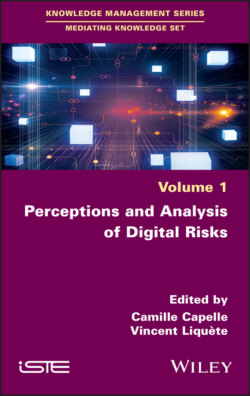Читать книгу Perceptions and Analysis of Digital Risks - Группа авторов - Страница 27
1.3.2. Methodology and data collection
ОглавлениеThe survey conducted as part of the eRISK project took place between 2016 and 2019. Based on the typology of digital risks presented above, the survey explored the reported representations and practices of new teachers. The survey questionnaire, entitled “Enquête sur les pratiques numériques des enseignants” (survey on the digital practices of teachers), was distributed to all elementary school teachers and secondary school teachers, as well as principal education advisors in the academies of Bordeaux and Créteil, regardless of their seniority level. A total of 3132 teachers felt that this survey concerned them, and they responded in full. Among these 3132 respondents, 724 teachers were new teachers (i.e. the target of the study). We therefore analyzed the responses of these new teachers exclusively, with the idea of also being able to compare these results with those of more experienced teachers. This work is not covered here and may form the subject of a subsequent analysis.
It should be noted that the criterion of the number of years of experience is independent of the age of the teachers. Indeed, our panel of teachers interviewed was mostly under 35 years of age (72.4% of them), but the rest of the teachers were older, with most of them having changed careers. Following an initial analysis of the results, semi-structured interviews were conducted with 15 volunteers from the teachers who responded to the survey. The objective here was to present the major trends of the study to them in order to get them to react to them and explain their positions. This mixed data collection, both quantitative and qualitative, made it possible to refine and better understand some of the survey’s results, considering the diversity of representations around this subject.
The perceptions of digital risks were examined through the positions and discussions of the teachers interviewed. They relate both to their takes on their personal, often daily digital practices, and to their takes on their role as educators of young people. In order to see what conceptions of digital technology exist among this new generation of teachers and what status they afford to digital literacy, we sought to understand the diversity of these practices while aiming to identify sets of positions governed by common values, beliefs or principles.
